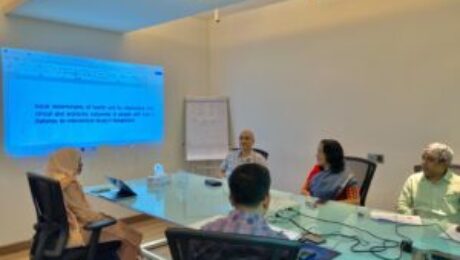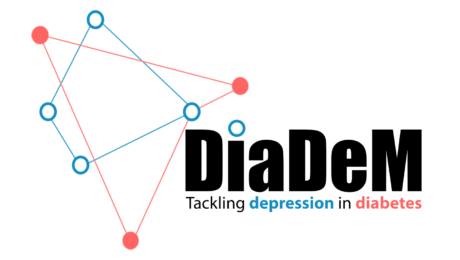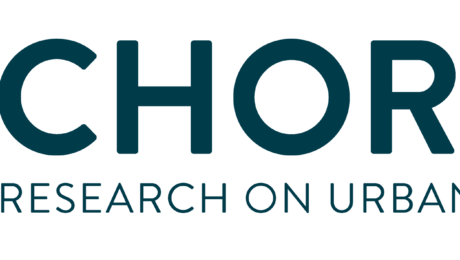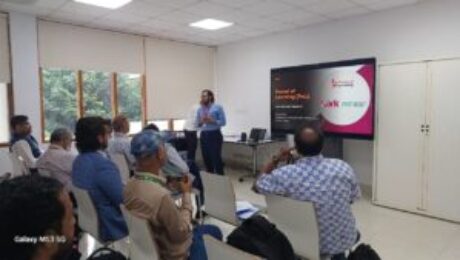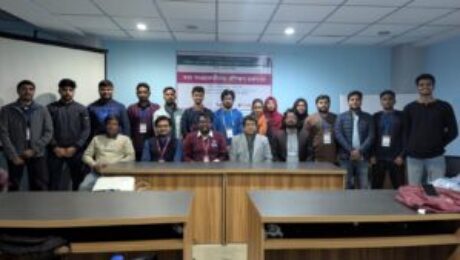This study will consist of ten in-depth country case studies examining how specific drowning prevention activities have been implemented. Using a document review and key informant interviews, we will analyze the implementation pathways for both drowning prevention interventions and cross cutting strategies, drawing on both implementation science and policy implementation theories to trace the implementation
- Published in Non-Communicable Disease, Our Work
No Comments
Social determinants of health and its relationship with clinical and economic outcomes in people with type 2 diabetes in Bangladesh Diabetic association of Bangladesh (BADAS) 2024-25 ARK Foundation, in partnership with Diabetic association of Bangladesh (BADAS) is implementing a research study to understand the social determinant of health (SDOH) and its relationship with clinical and
- Published in Non-Communicable Disease, Our Work
DiaDeM stands for “Developing and evaluating an adapted behavioural activation intervention for people with depression and diabetes.” Funded by the National Institute for Health and Care Research (NIHR), UK, this five-year initiative (September 2020 to March 2026) is being implemented in Bangladesh and Pakistan to address the growing burden of co-existing diabetes and depression. In
- Published in Non-Communicable Disease, Our Work
National Situation Analysis on Policy and Programmes Promoting Physical Activity in Bangladesh (SAT)
The main objective of this project was to identify the barriers and facilitators of physical activities to reach Global Action Plan on the prevention of NCDs in Bangladesh. The situation analysis also attempted to provide an overall view of the current scenario regarding the presence of physical activity as a standalone action area or as
- Published in Non-Communicable Disease, Our Work
In every Community Clinic, there is a Community Group (CG) and multiple Community Support Groups (CSGs). They have different tasks for community engagement. The aim of the study was to assess the role of Community Group (CG) and Community Support Group (CSG) in Community Engagement during the COVID-19 pandemic and after COVID-19. The study also
- Published in Communicable Disease, Our Work
Community-led Responsive and Effective Urban Health Systems (CHORUS) is a Research Programme Consortium that brings together health researchers from South Asia, West Africa, and the UK. CHORUS works with communities, health professionals and city level decision makers to strengthen the urban health system, especially for the urban poor. ARK Foundation is currently implementing three projects
- Published in Non-Communicable Disease, Our Work
Bangladesh’s improving economy offers potential for increased health funding, yet public health investment remains low, with high out-of-pocket (OOP) expenses and per capita spending (USD 42) well below WHO’s recommended USD 88. While progress has been made in maternal health, immunization, and managing non-communicable diseases through primary and secondary care facilities, critical indicators like infant
- Published in Health Systems, Our Work
People with severe mental illness (SMI) are at higher risk of obesity linked to medication side effects, poor diet, inactivity, and sleep issues which increases their vulnerability to non-communicable diseases like heart disease and diabetes. Globally, 25.9% of people with SMI are obese, with rising rates in low- and middle-income countries (LMICs), especially South Asia.
- Published in Non-Communicable Disease, Our Work


